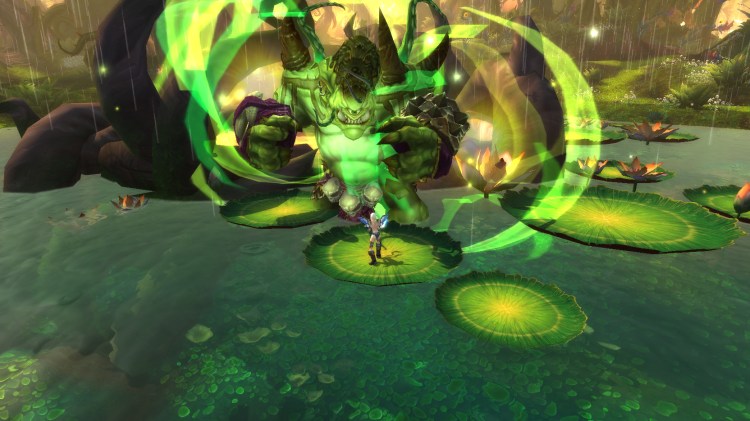Despite World of Warcraft’s recent spike and plunge in paid subscribers, Blizzard Entertainment has a bright future, SuperData Research chief executive Joost van Dreunen said.
We knew Blizzard Entertainment’s Ion “Watcher” Hazzikostas would be bullish on Warcraft regardless of the recent subscription roller coaster (and he was, though the lead game designer pointed out some flaws the company plans to correct). But GamesBeat sought out the thoughts of one of the market-research firms that follow the $2.3 billion pay-to-play massively multiplayer online RPG world most closely for a more-neutral opinion.
It’s no problem, van Dreunen said.
“WoW is the market leader, by a landslide. It holds around a third of the worldwide pay-to-play MMO market,” he said. “Generating still over a billion [dollars] in revenue annually, it’s a juggernaut of a franchise, especially if you consider it’s been around for more than 10 years.”
Warcraft picked up millions of subscribers with the launch of this fall’s Warlords of Draenor expansion pack, putting it back over 10 million players paying around $13-$15 a month. Then it dropped just as dramatically, settling around 7 million. Van Dreunen attributed the drop in part to the momentum behind massive online battle arena titles like League of Legends and Valve’s Dota 2.
“In some ways, the legacy of WoW continues to live on in spin-offs like Hearthstone, with cumulative earnings of around $200 million, and the soon-to-be-launched Heroes of the Storm,” he said. “Meanwhile, new market entrants like Wildstar have failed to capture significant market share in pay-to-play MMO space, and we expect that these titles will convert to free-to-play instead.”
He attributes World of Warcraft’s long-term success to the high barrier for other players to get into the paid-subscription market, including ongoing development costs, infrastructure and the cost of acquiring players. It got the advantage initially because it was easier to play.
“For consumers, there were, in fact, several popular titles like EverQuest when WoW emerged, but none of these were as accessible for players,” he said. “As WoW reached critical mass, a large part of the industry had started to shift to free-to-play, making it very difficult for any new entrants to justify a subscription-based monetization scheme.”
Van Dreunen doesn’t see a lot of options for a new pay-to-play game in the genre.
“Subscription-based MMOs require a lot of dedicated game time from their players, which makes the total addressable market relatively narrow,” he said. “By [WoW] capturing a critical mass, there wasn’t enough room in the market for any contender of equal size.”
VentureBeat's mission is to be a digital town square for technical decision-makers to gain knowledge about transformative enterprise technology and transact. Learn More


